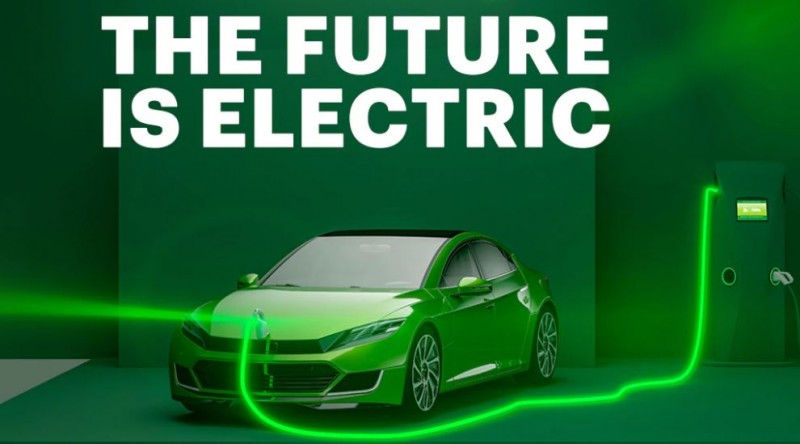
The automotive industry has been undergoing a significant transformation with the rapid advancement of electric vehicles (EVs). As we venture further into the 21st century, the future of electric cars promises a paradigm shift in transportation, sustainability, and technology. As concerns about air quality and global warming grow, the advantages of electric vehicles, such as reduced operating costs and a growing selection of models, become more compelling. You can say electric vehicles are the future of transport. In this article, we will explore the potential developments that could shape the automotive landscape in the next decade, highlighting key areas such as battery technology, charging infrastructure, autonomous driving, environmental impact, and societal adoption.
Evolving Battery Technology
One of the primary factors influencing the future of electric cars is the continuous evolution of battery technology. Researchers and engineers are relentlessly working towards developing batteries with higher energy density, faster charging capabilities, longer life cycles, and reduced costs. Advancements in solid-state batteries, lithium-sulfur batteries, and other innovative chemistries promise to increase EV ranges and decrease charging times. Furthermore, recycling and sustainability practices for battery materials will become essential as EV adoption grows exponentially.
Ubiquitous Charging Infrastructure
The growth of electric vehicles relies heavily on the expansion of charging infrastructure. As governments, businesses, and individuals recognize the importance of transitioning to sustainable transportation, we can expect a surge in investments in charging networks. Improved charging technologies, such as ultra-fast chargers and wireless charging, will enable convenient and seamless charging experiences, eliminating range anxiety and making EV ownership more appealing to a wider audience.
Accelerating Autonomous Driving
Autonomous driving is no longer a distant dream but an imminent reality. Electric vehicles are at the forefront of this transformative technology due to their compatibility with advanced driver-assistance systems (ADAS) and autonomous hardware. As self-driving capabilities improve, EVs are likely to create a safer and more efficient transportation ecosystem. Additionally, shared autonomous electric vehicles could redefine urban mobility, reducing the need for private car ownership and thereby mitigating traffic congestion and carbon emissions.
Environmental Impact and Sustainability
The environmental benefits of electric cars are undeniable, with zero tailpipe emissions and lower overall carbon footprints compared to internal combustion engine (ICE) vehicles. In the future, governments and manufacturers are expected to focus on enhancing the entire lifecycle of EVs, from production to recycling. Sustainable materials, renewable energy sources in manufacturing, and closed-loop recycling systems will play a vital role in reducing the environmental impact of electric cars even further.
The Role of Governments and Policy
Government policies and regulations are instrumental in shaping the future of electric cars. In the coming years, we can anticipate more incentives and subsidies for EV buyers, stricter emission standards for traditional vehicles, and greater investments in EV infrastructure. International agreements and commitments to combat climate change will also drive the transition towards cleaner transportation alternatives, accelerating the adoption of electric vehicles globally.
Societal Acceptance and Adoption
The mass adoption of electric cars hinges on societal acceptance and perception. Addressing consumer concerns such as upfront costs, charging accessibility, and driving range will be crucial in encouraging more people to embrace electric mobility. Raising awareness about the long-term benefits of EVs and debunking common misconceptions will also be vital in fostering a positive outlook toward electric cars.
Electric Cars in Emerging Markets
As electric cars continue to gain popularity in established markets, the next frontier lies in emerging economies. Developing countries face unique challenges, but they also present significant opportunities for EV manufacturers and policymakers. Government support, innovative business models, and tailored solutions to local needs will be vital in catalyzing electric vehicle adoption in these regions, contributing to a greener and more sustainable future.
The future of electric cars is bright and transformative. Technological advancements in battery technology, the establishment of robust charging infrastructure, the rise of autonomous driving, heightened environmental consciousness, and supportive government policies will undoubtedly accelerate the transition toward a cleaner, more sustainable automotive industry. As electric cars become more accessible, affordable, and widely accepted, they have the potential to revolutionize transportation and shape a greener future for generations to come. Embracing electric vehicles is not merely a trend but a crucial step towards ensuring a cleaner, healthier planet. The journey has begun, and the road ahead is electrifying!
Unveiling India's Top-Selling Cars
Cable Cars: A Unique Form of Public Transportation in Cities Worldwide
What is the first automotive manufacturer in India